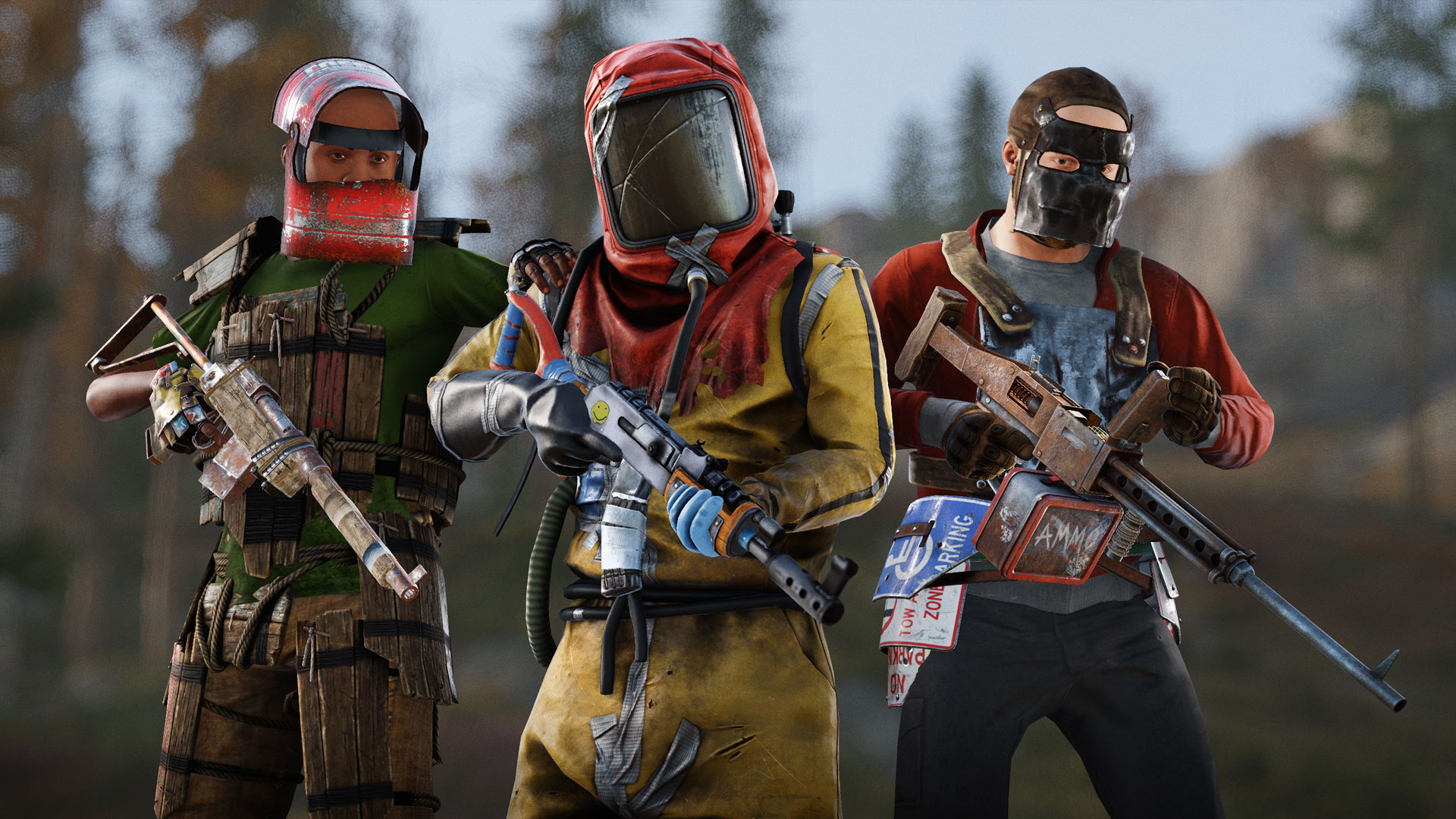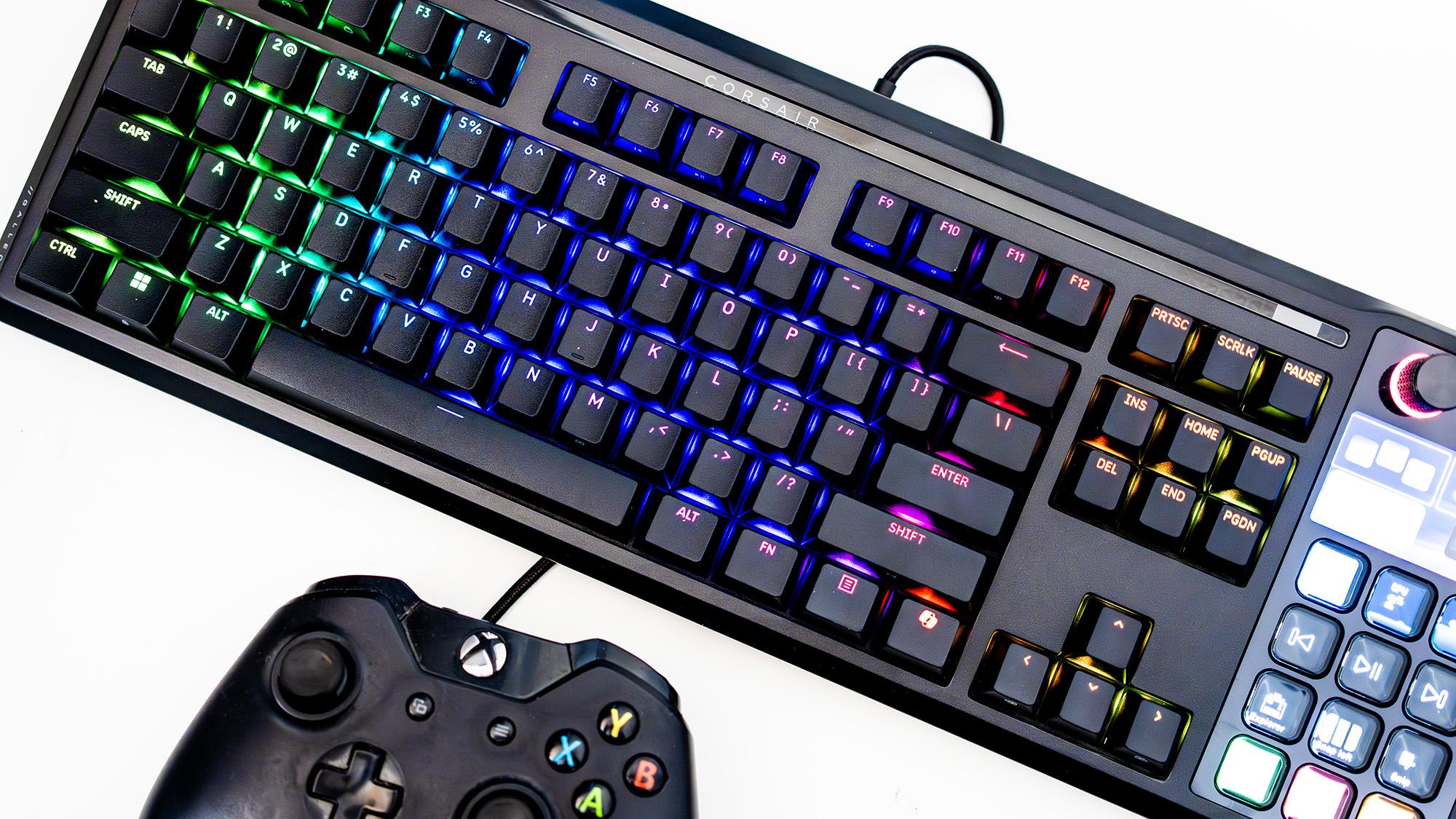Rust developer has 'no plans' for Linux or Proton support, says games that support them are 'not serious about anti-cheat'
So much for my Steam Machine plans.

Keep up to date with the most important stories and the best deals, as picked by the PC Gamer team.
You are now subscribed
Your newsletter sign-up was successful
Want to add more newsletters?

Every Friday
GamesRadar+
Your weekly update on everything you could ever want to know about the games you already love, games we know you're going to love in the near future, and tales from the communities that surround them.

Every Thursday
GTA 6 O'clock
Our special GTA 6 newsletter, with breaking news, insider info, and rumor analysis from the award-winning GTA 6 O'clock experts.

Every Friday
Knowledge
From the creators of Edge: A weekly videogame industry newsletter with analysis from expert writers, guidance from professionals, and insight into what's on the horizon.

Every Thursday
The Setup
Hardware nerds unite, sign up to our free tech newsletter for a weekly digest of the hottest new tech, the latest gadgets on the test bench, and much more.

Every Wednesday
Switch 2 Spotlight
Sign up to our new Switch 2 newsletter, where we bring you the latest talking points on Nintendo's new console each week, bring you up to date on the news, and recommend what games to play.

Every Saturday
The Watchlist
Subscribe for a weekly digest of the movie and TV news that matters, direct to your inbox. From first-look trailers, interviews, reviews and explainers, we've got you covered.

Once a month
SFX
Get sneak previews, exclusive competitions and details of special events each month!
Rust has a long, rocky will-they-or-won't-they history when it comes to official support for both Proton and Linux, and with a new Steam Machine on the way it's no surprise to see those conversations popping up again. Valve's cute little cube will run SteamOS and use Proton—a compatibility layer to make Windows games play nice with Linux—but you can't play official Rust using it.
The latest plea for official Proton support started on Reddit, where Scout339v2 shared their screenshot of Rust running "on a server with EAC disabled to show that the game already works perfectly on Linux." Disabling Easy Anti-Cheat (EAC) is the key factor here, and part of a broader conversation where Facepunch and its Linux/Proton userbase don't see eye-to-eye.
While it's true Rust runs on Proton, you can't join official servers, and most unofficial servers, with EAC disabled. Facepunch considered changing its stance in 2022 when the Steam Deck launched, but didn't end up introducing official Proton support. COO Alistair McFarlane said at the time that Linux is "safer for cheat developers," and that trying to support EAC on another platform could reduce the team's ability to support Windows.
Nothing has changed since, and McFarlane reiterated the studio's previous stance in the thread.
"There are no plans to support Proton or Linux," said McFarlane. "It's a vector for cheat developers, and one that would be poorly maintained by both us and EAC due to the low user base. When we stopped support for Linux, we saw more cheat users exploiting Linux, than actual legitimate users."
A plea for enabling EAC for Proton so Rust can be played on Linux PCs & Steam Decks with a flip of a switch - No recompiling or Linux builds required from r/playrust
As McFarlane indicates in that response, Rust did once have official Linux support, but Facepunch discontinued it in 2019 for the same reasons it's chosen not to pursue it again, citing the challenge of supporting another OS and the cheating problem. A follow-up blog addressed community requests for Proton support as a solution, and while Facepunch owner Garry Newman stated they were "not opposed to it," there were still no plans to support Proton in an official capacity.
"From that experience, I'm very comfortable saying that if a game supports Proton or Linux, they're not serious about anti-cheat," McFarlane wrote in the Reddit thread. "The only exception would be if they have a fully mature, dedicated in-house anti-cheat team, even then, I'm not seeing anyone handle Proton and Linux well."
Keep up to date with the most important stories and the best deals, as picked by the PC Gamer team.
Cheating is of course an inevitability when you're dealing with online multiplayer anything, but you do what you can to mitigate it. Some Linux and Proton hopefuls cite their smaller numbers as a reason to offer support through Valve's compatibility layer, but it sounds like McFarlane's point isn't about what cheat developers are using to boot and play Rust. It's more about the extra avenue they've created and its potential to be exploited on all platforms—a weakness in the bunker, if you will.
"The issue is multiple, one of which addresses your comment: it opens a new vector," said McFarlane. "Cheaters don't need to use Proton or Linux, that's the core problem. Cheaters simply have to exploit the module that Linux/Proton uses, creating an exploitable vector which is compatible on Windows for cheat users. You're then fighting abuse of the Linux/Proton and Windows modules."
Admittedly, I've toyed with Linux very little, but understand the yearning for support. That's especially true now as I try to unplug myself from the Windows ecosystem as much as possible. It's a bummer, and I feel that frustration a little more every time I have to do some extra tinkering with games on the Steam Deck.
"I know that every time I post something like this, some Proton and Linux users call us lazy or dismissive," said McFarlane. "The reality is that fighting cheaters on one front (Windows), is already a never-ending battle. Adding more fronts multiplies that challenge without adding meaningful benefit to the wider player base."
2025 games: This year's upcoming releases
Best PC games: Our all-time favorites
Free PC games: Freebie fest
Best FPS games: Finest gunplay
Best RPGs: Grand adventures
Best co-op games: Better together

Andrea has been covering games for nearly a decade, picking up bylines at IGN, USA Today, Fanbyte, and Destructoid before joining the PC Gamer team in 2025. She's got a soft spot for older RPGs and is willing to try just about anything with a lovey-dovey "I can fix them" romance element. Her weekly to-do always includes a bit of MMO time, endlessly achievement hunting and raiding in Final Fantasy 14. Outside of those staples, she's often got a few survival-crafting games on rotation and loves a good scare in co-op horror games.
You must confirm your public display name before commenting
Please logout and then login again, you will then be prompted to enter your display name.


